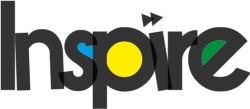
Here in Rwanda we certainly had some interesting and positive highlights of 2016 and here are some of the very few. A Portuguese company signed a deal to build a state-of-the art airport in Bugesera. The majestic Kigali Convection Center opened doors for the African Union summit. Earlier on it would host the World Economic Forum, boosting the vision of attracting more business tourists. For other brands like Rwandair, it came off as a successful year, a homegrown brand in a tiny landlocked country, expanding its fleet with the latest aircraft and announcing new flights to far-east destinations.
It was certainly a beautiful year and the pace of change is definitely arousing both anxiety and excitement for 2017. We are thinking, this year is likely to be a ‘show-time’ and here are some of the things to look out for.
No expected shocks in the political movement
While Rwanda has always invented and created, being part of the global innovation cycle, drones being flagged off to deliver health supplies to the less fortunate areas and more start-ups being unveiled, this wont be all.
In 2017, we will expect more innovations, no doubt! However while we ravel through the New Year there will be more than just innovations and we definitely wont ignore political movements. Politics will be right in our faces. In Rwanda, 2017 is election year and probably a refreshed (but not necessarily new government) will be voted into power.
Going by the results of the constitutional referendum of December 2015, the presidential election result wont be, a shocker. Imagine appraising the ruling party RPF, imagine their scores and imagine which opposition political party can beat them. We surely won’t expect any surprises because its certainly another RPF win.
2017 will attract more foreign brands
While it may not be easy to predict the economy, 2017 presents two shifts that will be visible. The first will be the renewed momentum to attract more multinational brands. And the other is the consolidation of government private partnerships. The real estate business might struggle, more especially for the developers.
However lets review how the country attracted some foreign entries. The long awaited Marriott brand officially unveiled its 5 star facility last year. Radisson Blu was also a bonus to the hospitality industry, which has a deficit of hotel rooms. In the financial industry Bank of Africa opened doors.
Today, more other brands are considering trekking into the city. Some are freshly built brands others boast of a heritage. Africa Improved Foods (AIF), which has already set-up a state-of-the-art plant at the Special Economic Zone, is likely to unveil a ‘Made In Rwanda’ nutritious food product that is likely to tussle it out with the already established ‘Maganjo’, Cerelac, Nestle et al. We are certain that ‘Javas House’ which represents a chain of coffee outlets with its head office in Nairobi, Kenya has set up in Kigali Heights investing some $30,000.
That aside we are already optimistic about Volkswagen’s announcement to carry out a feasibility study that would enable the brand build a plant in Rwanda. Usually there is an excitement associated with these kinds of things, however those in charge (Rwanda Development Board, I suppose) need to ready themselves for entry of such big brands. While you attract, it’s also important that you retain. We frowned when Kempinski snapped ties with Mille Collines and we never questioned why. We also did the same when Nation Media’s KFM closed shop. KFM was the kind of platform that would in future be so pivotal to the growth of media and entertainment.
After their feasibility study Volkswagen could out-rightly consider opening a plant in Rwanda. Question is: Do we have the required resources to sustain a Volkswagen plant? Do we have the right human resource capital, the infrastructure and even sufficient energy? In the New Year we don’t want brands leaving.
Cashless economy will be blessed with coming of mobile micro-loans Talking about brands there will be some interesting and relevant entries, some of which could be industry crackers, while others will flop or drag. We know that the Kenyan brand CBA is toying with the idea of launching a mobile micro-loans product in Rwanda (early in the year). This will be in partnership with MTN Rwanda and just as it was launched in Uganda in 2016, it will be dubbed ‘MoKash’ in Rwanda.
MoKash is likely to be a trendsetter in Rwanda’s financial industry and there is a little more to this product than talking about a partnership between two big brands.
This product will be the first mobile micro saving and lending service of its kind in Rwanda and has been predicted to stump its suitability to the country’s financial service market. The benefits of this product extends across all socio-economic spheres, “from rural woman who wishes to incrementally save small amounts of money for her family’s monthly expenses, to micro-entrepreneurs who aspire to grow their business, to students who must pay their school fees, and to farmers who need capital to boost their crop inputs—all thanks to the service’s instant loan processing capability.”
For Rwandans this could be a game changer for the New Year. CBA is Kenya’s largest privately owned bank and will be the fifth Kenyan bank to set up in the Rwandan market, following in the footsteps of KCB, Equity, I&M Bank and GT Bank (previously Fina Bank.)
A push for more Public Private Partnerships
The second shift will be signaled by government’s push for more private partnership. We saw a couple of successes including one that bore the ‘Kigali Convention Center’. In 2017 Africa Improved Foods, which built a state-of-art facility at the Kigali Special Economic Zone, will produce fortified foods and will unveil a commercial brand that might be a game changer in the food industry.
If the same dynamism is freshly renewed for the New Year Rwandans will definitely have the same swagger.
2017 checklist:
Political will be stale, RPF will win elections
Business will be hampered
Made in Rwanda will be a force to reckon
Fashion and arts will shine, new faces will be born
We would have thought that the internet was more of a cultural nuisance in 2016. In 2017 fashion arts and the urge to create the next most ‘successful startup’ will bost the culture of enterprenuership. Some names like Sonia Mugabo came rolling down our sleeves.
Rwanda is becoming a fashion powerhouse
More inspiration … More start-ups
We have a lengthy 2017 ‘To-Do-List’
to-do-list’haute baso: Celebrating the Heritage of Rwandan Artisanship
Haute Baso on Magnifeco12345
- Log in to post comments
